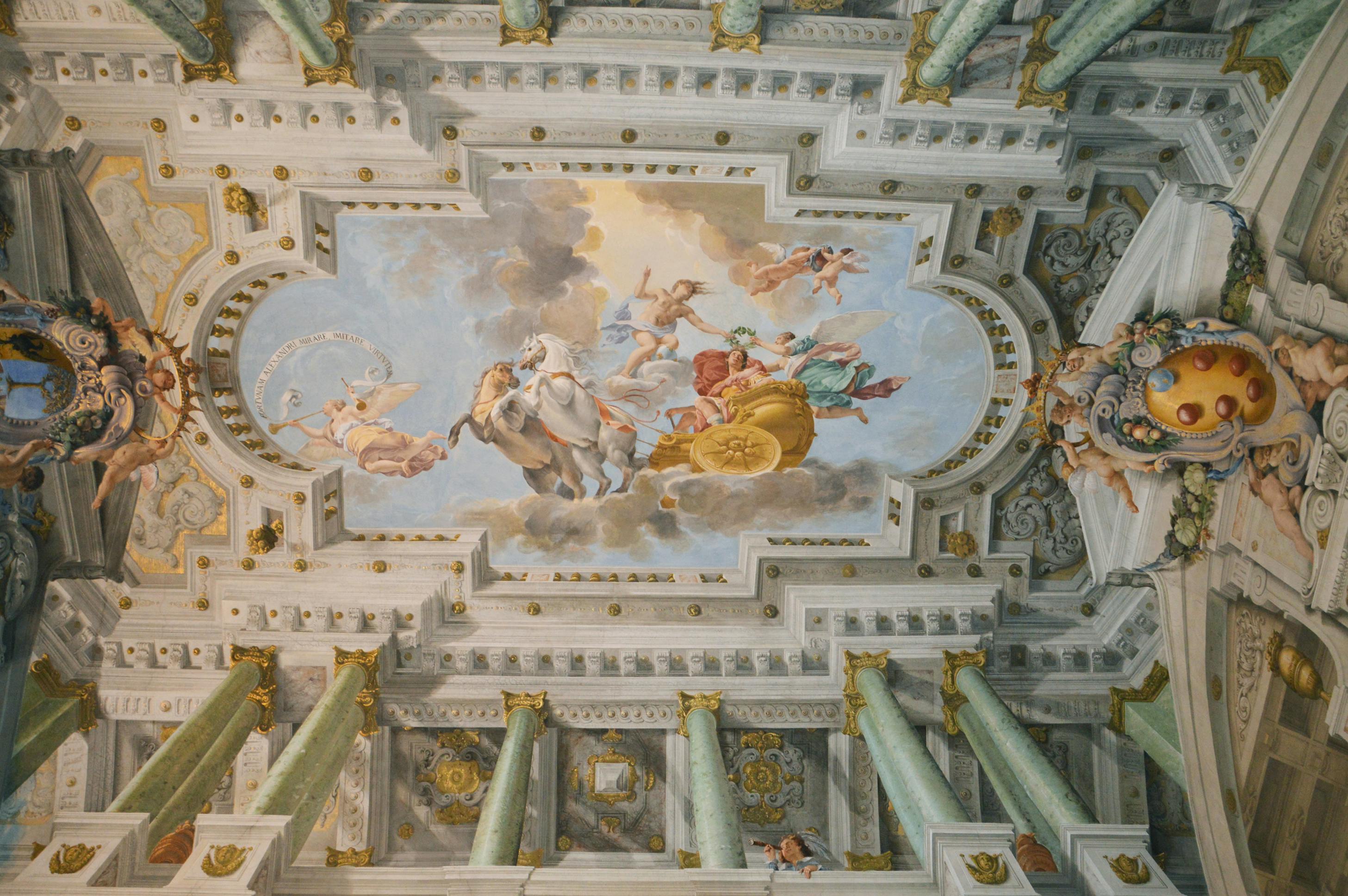Private Audience Hall or Hall of Columns of the Summer Apartments
Angelo Michele Colonna (Cernobbio, 1604 - Bologna, 1687) and Agostino Mitelli (Bologna, 1609 - Madrid, 1660)
This room, like the previous Sala dell’udienza pubblica (Public audience hall), was for presentations and receptions for nobility and ambassadors in the Medici era. Here too, the decorative layout, entrusted to the masters of perspective painting, Agostino Mitelli and Angelo Michele Colonna of Bologna, presents grandiose painted architectures aimed at expanding the space through illusion and creating an effect of magniloquence and wonder.
The room, although narrower, maintains the division into two levels, and is enlarged by a raised gallery, consisting of a very elegant loggia with columns encircled by an oak branch, alluding to the coat of arms of Ferdinando II de’Medici’s wife, Vittoria della Rovere.
In the centre of the ceiling is a scene depicting the Apotheosis of Alexander the Great: the emperor is seated on the triumphal chariot, drawn by two white horses and crowned with a laurel by Apollo, protector of the Humanities and the Arts. On the left, Fame with a trumpet announces his triumph and holds a scroll inviting people to emulate his virtues. Alexander's exploits are frescoed on the walls in monochrome and highlighted in gold to embellish and enliven the chromatic fabric of the room. On the central wall is painted, below the imposing Medici coat of arms, the marble bust of ‘Alexander Dying’. The Greek original, which has been in the Medici collections since 1580, is now on display in the Uffizi. The celebration of Alexander alluded to the figure of Ferdinand II as a protector of the sciences and the arts, who rose to power like the Macedonian leader at a young age.
Characters from court life also appear in this room, amidst the fake architecture, such as a child playing with a parrot and a young man scanning the sky with a telescope, alluding to the revolutionary discoveries of Galileo Galilei, who at that very time, although protected by the Medici, was undergoing the trial that led to his abjuration.
M. Mosco, L'appartamento d'Estate dei granduchi, in Palazzo Pitti. L'Arte e la Storia, Firenze 2000, pp. 90-104.
